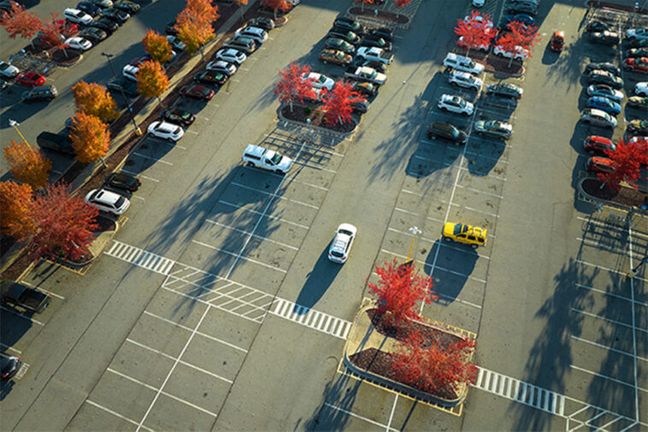During an extended period of COVID-19-related changes to the way businesses operate, and considering the uncertainty of what the situation may be in the coming months, the potential significance of a recent Illinois Supreme Court’s opinion on the issue of whether a home office is sufficient for purposes of establishing venue cannot be overemphasized. Even though the facts of Tabirta v. Cummings, 2020 IL 124798, originated well before COVID-19 surfaced to influence many parts of everyday life, its issuance during the pandemic serves to provide guidance for business owners and defense counsel alike moving forward, especially when so many employees are working from home.
In Tabirta, the plaintiff was severely injured when another tractor-trailer, operated by defendant Cummings, struck his tractor-trailer in Ohio in December of 2016. GML, a food manufacturer, owned Cummings’ tractor-trailer. Plaintiff filed a negligence action against Cummings and GML in the Circuit Court of Cook County, Illinois, alleging Cummings was negligent in the operation of his vehicle, and GML was liable for Cummings’ negligence pursuant to an agency theory of liability. (Id. at ¶3)
GML and Cummings filed a motion to transfer venue pursuant to the Illinois venue statute, 735 ILCS 5/2-101. This statute provides venue is proper either (1) in the county of residence of any defendant, or (2) in the county in which the transaction occurred. A corporation is considered a resident of any county in which it has a registered office or other office or is doing business. See, 735 ILCS 5/2-102(a). The plaintiff argued venue was proper in Cook County because a GML employee, James Bolton, maintained a home office there, which constituted an “other office” as referenced in the statute. In the alternative, plaintiff argued Cook County was a proper venue because GML was “doing business” there. (Id. at ¶4)
Discovery revealed the following facts:
- Cummings was not a resident of Cook County (Id. at ¶5);
- GML was a Missouri corporation with its principal place of business and registered agent located in Randolph County, Illinois, more than 300 miles from Cook County (Id.);
- GML owns several food manufacturing plants, none of which were in Cook County (Id.);
- Bolton has resided in Cook County since 1956 (Id. at ¶6);
- After his retirement, Bolton began working part-time for GML as a customer service and account representative (Id.);
- Bolton worked mainly out of his home (Id. at ¶8);
- GML did not pay any portion of Bolton’s mortgage, utilities, cell phone bills, internet charges, office supplies or other expenses associated with his home office (Id.);
- Customer service calls to GML’s general 800 number would be routed to Bolton’s personal cell phone (Id.);
- Bolton communicated with customers using his GML-provided email address (Id.);
- GML provided Bolton with a computer (Id.);
- GML’s vice president testified Bolton’s county of residence was irrelevant to their hiring decision and his employment status would not be affected if Bolton chose to move to a different county (Id. at ¶9); and
- GML did not own property in Cook County, and its total sales in Cook County for 2016 amounted to 0.19% of its overall sales (Id. at ¶10).
After hearing this evidence, the trial court denied the motion, determining Bolton’s home office constituted an “other office” of GML because he serviced clients on behalf of his employer from his Cook County residence. The court, however, rejected the alternative argument GML “was doing business” in Cook County, due to the low volume of sales to Cook County customers. (Id. at ¶11). After GML and Cummings appealed, the Appellate Court affirmed the trial court’s ruling. (Id. at ¶13). The Illinois Supreme Court then accepted defendants’ petition for leave to appeal.
The Illinois Supreme Court began by recognizing a proper venue is a valuable privilege belonging to the defendant and, therefore, is accorded great weight by Illinois courts. Consequently, a defendant who objects to a plaintiff’s chosen venue has the burden of proving the venue is improper, although a trial court should construe the venue statute liberally in favor of effecting a change of venue. (Id. at ¶¶16, 17).
The Court, as a threshold matter, determined Bolton’s office was an “office” as that term is commonly defined and understand. (Id. at ¶27). However, the critical issue was whether GML had an office in Cook County – in other words, was Bolton’s home office an “other office” of GML as contemplated in the venue statute.
Ultimately, the Court determined Bolton’s office did not constitute an “other office” of GML because the evidence established GML did not purposefully select Cook County to conduct business activities. Rather, it hired a person – Bolton – who just happened to live in Cook County. (Id. at ¶¶28, 29). Further, the Court gave significant weight to the fact that GML did not pay any expenses associated with Bolton’s home office, and GML did not identify Bolton’s residence as an office of GML to customers or on its website. (Id. at ¶30). The Court also rejected the plaintiff’s argument that a call to GML’s general 800 number, which would route to Bolton’s cell phone, weighed in favor of Cook County, reasoning Bolton could answer his cell phone in a coffee shop or anywhere outside of his home and Cook County. (Id. at ¶31). As a result, based on the totality of the evidence presented, the Court concluded Bolton’s Cook County residence was not an office of GML for venue purposes. (Id. at ¶32). The Court also agreed GML was not “doing business” in Cook County. (Id. at ¶¶35, 36).
In a concurring opinion, Justice Kilbride emphasized the Court’s ruling was based upon the specific, narrow facts presented, and it is an “open question” as to whether a defendant operating a business out of her home would be sufficient to satisfy the statutory venue requirements, observing a “one-size solution” does not fit all for purposes of the venue statute. (Id. at ¶¶43, 44).
The Tabirta case potentially has important implications for businesses whose employees are working from their homes for the foreseeable future. Now, businesses should be aware that when they supply employees technology to use in their home offices, pay for their supplies, cell phones and other equipment integral for their work, they could be unintentionally establishing venue in a county – including a plaintiff-friendly county such as Cook County – with which they otherwise would have minimal contact pre-COVID. Of particular note, even though the evidence established GML did not hire its employee because he lived in a particular county, the Court proceeded to discuss other factors to weigh, suggesting intentionality in hiring is not a dispositive factor. Further, if the employee working from a home office generates revenue, the Tabirta case suggests this may even satisfy the “doing business” prong in the venue statute, dependent upon the amount of that revenue.
Unfortunately, in these times of uncertainty, there is no particular solution to a potential venue issue, nor do we suggest, by this article, that a business should change its staffing or hiring practices. We do, however, believe that businesses and defense counsel should be mindful of Tabirta when assessing a new lawsuit venued in what one might otherwise consider an unexpected county.
We should note, too, just because venue may be proper in one county does not necessarily mean it is the most convenient forum and, as such, may warrant a forum non conveniens motion.


 Author: Scott Ruksakiati
Author: Scott Ruksakiati
 Privacy vs. Relevance: How Deep Can Discovery Go in Colorado Lien Cases?
Privacy vs. Relevance: How Deep Can Discovery Go in Colorado Lien Cases?
 Stale Bread: Workers Accuse Panera of Wage Theft
Stale Bread: Workers Accuse Panera of Wage Theft
 Civil Procedure Updates to Know in New York for 2025
Civil Procedure Updates to Know in New York for 2025
 Collaboration Is Key to Preparation in the Weeks Before Trial
Collaboration Is Key to Preparation in the Weeks Before Trial
 But I Didn’t Mean to Do It …
But I Didn’t Mean to Do It …
 Be Bold, Be Bright, But Be Brief…
Be Bold, Be Bright, But Be Brief…
 Taming the Wolf: Florida’s Fifth DCA Holds the Line on Tort Reform
Taming the Wolf: Florida’s Fifth DCA Holds the Line on Tort Reform
 Power of Persuasion
Power of Persuasion
 Ask Atty: William Johnson
Ask Atty: William Johnson
 To Defend and Indemnify, or Not to Defend and Indemnify
To Defend and Indemnify, or Not to Defend and Indemnify
 Start Small, but Think Big: Attorneys’ Fees Can Add Up
Start Small, but Think Big: Attorneys’ Fees Can Add Up
 There’s No Such Thing as A Free Bite
There’s No Such Thing as A Free Bite
 “Building” a Better Plan for Design Professional Expert Witnesses: Theater Patrons Trapped in Elevators After Architect’s Failure
“Building” a Better Plan for Design Professional Expert Witnesses: Theater Patrons Trapped in Elevators After Architect’s Failure
 Actions With Far-Reaching Consequences: Brody v. Hoch, Non-Resident Jurisdiction, and the “Long Arm” of the Law
Actions With Far-Reaching Consequences: Brody v. Hoch, Non-Resident Jurisdiction, and the “Long Arm” of the Law
 Let’s Get Ethical! Amendments to Illinois Rules of Professional Conduct Intended to Guard Against Harassment and Discrimination...
Let’s Get Ethical! Amendments to Illinois Rules of Professional Conduct Intended to Guard Against Harassment and Discrimination...
 Duty of Care Ups and Downs: The Perils of a Parking Lot Gate
Duty of Care Ups and Downs: The Perils of a Parking Lot Gate
 Settling Under the FLSA
Settling Under the FLSA
 Crash Course: Why Summary Judgment Misses the Mark in Illinois Multi-Cause Limousine Crash Collision
Crash Course: Why Summary Judgment Misses the Mark in Illinois Multi-Cause Limousine Crash Collision